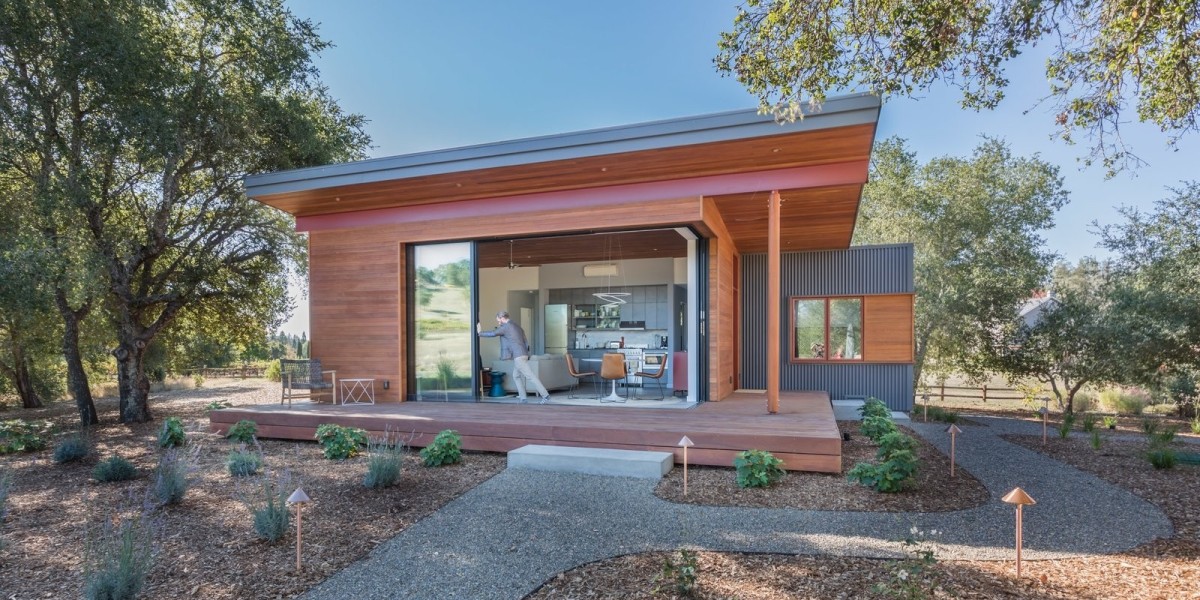Imagine a solution that could help you manage your mortgage, provide a home for an aging parent, or create a private workspace, all within the bounds of your own property. For a growing number of Medford homeowners, this isn’t a far-off dream; it's the very real potential of an Accessory Dwelling Unit, or ADU. Often called granny flats, in-law suites, or backyard cottages, ADUs are secondary housing units that share a single-family lot with a primary residence. As housing costs and living expenses in the Boston area continue to rise, these compact, efficient dwellings have emerged as a powerful tool for financial stability and flexible living. However, the path from concept to keys is not as simple as just deciding to build. It requires careful navigation of local rules, honest budgeting, and a clear vision for how the space will be used. Understanding the specifics of creating an accessory dwelling unit Medford MA regulations allow is the critical first step in determining if this innovative solution is the right fit for your home, your family, and your future.
Understanding the "Why": The Compelling Case for an ADU in Medford
The decision to build an ADU is often driven by a combination of personal and financial goals. For many, it’s a strategic move that addresses immediate needs while building long-term equity.
Financial Flexibility: One of the most powerful motivators is rental income. An ADU provides a steady stream of revenue that can help offset a significant portion of your mortgage, property taxes, or home maintenance costs. This can make homeownership in Medford more affordable and sustainable. Alternatively, an ADU can significantly increase your property's overall market value. A legal, permitted ADU is an attractive asset for future buyers, often offering a much higher return on investment than other types of home renovations.
Multigenerational Living Made Easy: Medford’s strong sense of community often extends to families wanting to live close together. An ADU offers the perfect balance of togetherness and independence. It allows aging parents to live nearby with privacy and dignity, avoiding the need for assisted living facilities. Conversely, it can also provide an affordable launchpad for adult children saving for their own home in a competitive market. The unit can also serve as a comfortable, long-term home for a live-in nanny or caregiver.
Enhanced Personal Space: Beyond rental and family uses, an ADU can be tailored to your lifestyle. It can become a dedicated home office, an artist’s studio, a fitness room, or a guest house for frequent visitors. This flexibility allows you to adapt your property to your evolving needs without the stress and expense of moving.
Navigating the Rulebook: Medford's ADU Regulations
Before you fall in love with a blueprint, you must become familiar with the local zoning and building codes. This is the most technical but non-negotiable part of the process. Medford has specific ordinances governing ADUs, and understanding them is crucial to a feasible project.
Key Zoning Requirements: The City of Medford’s zoning code outlines clear parameters for where and how ADUs can be built. While you should always consult the official ordinances for the most current information, general requirements often include:
Owner-Occupancy: Typically, the owner must reside in either the primary home or the ADU. This is a core principle to ensure ADUs contribute to the community rather than becoming pure investment properties.
Size and Scale: ADUs are limited in size, usually based on a percentage of the primary dwelling's square footage or a fixed maximum (often around 850-900 square feet). They cannot exceed a certain number of bedrooms, commonly one or two.
Lot Requirements: Your property must be of a minimum size and meet specific dimensional criteria, including frontage, depth, and setbacks from property lines.
Parking: Medford may require one additional off-street parking space for the ADU, unless the property is within a certain distance of public transit. This is a critical detail, as providing a new parking space on a tight urban lot can be a major challenge.
Types of ADUs: The city generally permits several types:
Interior ADU: A conversion of existing space, like a basement or attic, into a separate unit.
Attached ADU: An addition connected to the primary house.
Detached ADU: A new, standalone structure in the backyard.
The Permitting Process: Building an ADU is not a DIY weekend project. You will need to secure a building permit from the Medford Inspectional Services Department. This process involves submitting detailed architectural plans, site plans, and engineering details that demonstrate compliance with all zoning, building, electrical, and plumbing codes. Navigating this process successfully almost always requires the help of experienced professionals.
The Practicalities of Building Your ADU
With the regulatory landscape in mind, the next step is to plan the actual build. This phase is about turning the possible into the practical.
Assembling Your Team: A successful ADU project relies on a team of experts.
Design Professional: An architect or designer is essential for creating plans that are not only beautiful and functional but also fully compliant with Medford’s codes. They can help you maximize space and light in a small footprint.
Contractor: A reputable general contractor with experience building ADUs in the area is invaluable. They understand the local subcontractor network, the permitting process, and the common pitfalls of construction on Medford’s often compact lots.
Real Estate or Legal Advisor (Optional): If you plan to rent the unit, consulting with a real estate attorney to draft a solid lease agreement or a real estate agent to understand the impact on your property value can be a wise investment.
Budgeting Realistically: The cost of an ADU in Medford can vary widely based on size, type, and finishes. A high-end detached new build will cost significantly more than a simple basement conversion. However, you should be prepared for a substantial investment. Beyond construction costs (materials and labor), your budget must include:
Soft costs: Architectural and engineering fees, permit fees, and any potential impact fees.
Utility connections: Costs for tying into existing water, sewer, gas, and electrical lines or upgrading your service to handle the additional load.
A contingency fund: A rule of thumb is to set aside 10-20% of the total project cost for unexpected issues, which are common in renovations.
Considering Design and Livability: Because ADUs are small, every square inch must be intentional. Smart design choices are paramount. Think about an open-concept living area, high ceilings to create a sense of volume, and large windows for natural light. Durable, low-maintenance materials will save you time and money in the long run. Furthermore, considering universal design principles like wider doorways and a zero-step entrance can make the unit accessible to people of all ages and abilities, future-proofing your investment.
Weighing the Commitment: The Full Picture
Building an ADU is a major undertaking. While the benefits are compelling, it’s important to enter the process with your eyes open to the responsibilities.
The Benefits Revisited: A well-executed ADU project can provide financial security, strengthen family bonds, and create a versatile asset that enhances your quality of life for decades. It’s a proactive way to add housing density in a thoughtful manner that respects the character of Medford’s neighborhoods.
The Responsibilities Acknowledged: As a landlord, you take on the duties of maintaining another unit and managing a tenant relationship. As a property owner, you have a more complex asset to maintain and will likely see an increase in your property tax assessment. The construction process itself is disruptive, bringing noise, dust, and workers to your property for several months.
Building an accessory dwelling unit Medford MA homeowners can be proud of is a journey that demands careful planning, a clear understanding of local regulations, and a trusted team of professionals. By thoroughly researching your "why," respecting the "how" of the city's rules, and planning for the practical realities of construction, you can make an informed decision. For those who proceed, the reward is more than just a new structure on their property it's a dynamic tool for building a more secure, connected, and adaptable future right at home.







